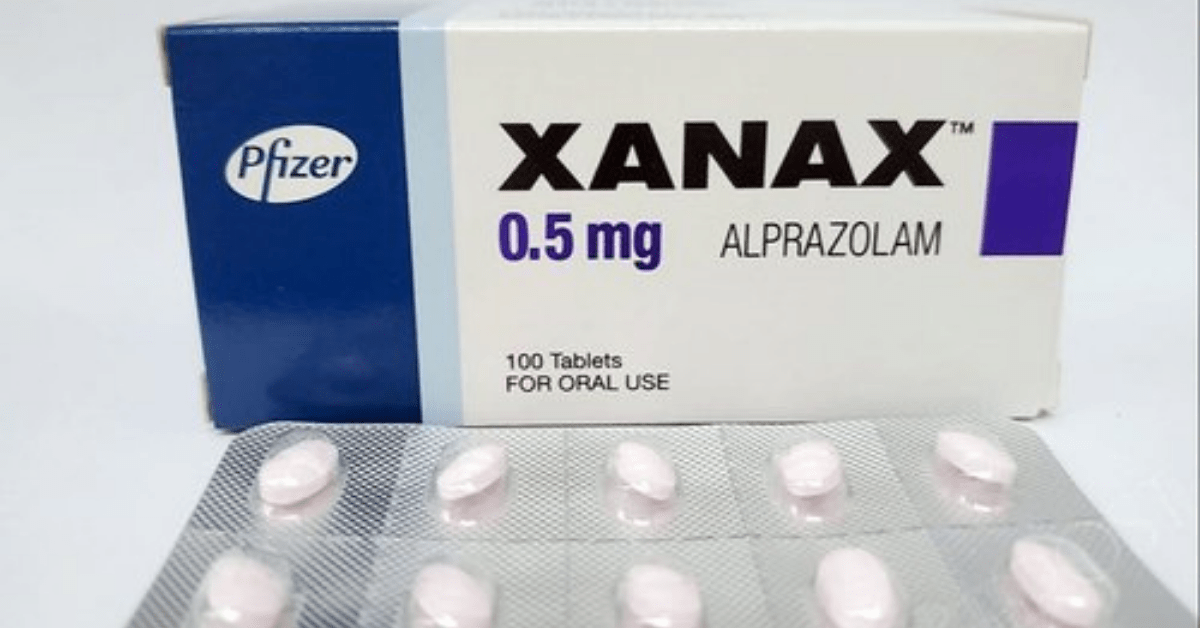
Xanax addiction has emerged as a pressing issue in Tennessee, with a growing number of individuals falling prey to its addictive properties. The misuse and abuse of Xanax, a prescription medication commonly used to treat anxiety disorders, have led to a rise in addiction cases across the state. In this post, we will delve into the prevalence of Xanax addiction in Tennessee, the factors contributing to its widespread use, and the impact it has on individuals and communities.
Xanax Addiction in Tennessee
Xanax addiction is a concerning problem in Tennessee, with many individuals grappling with the challenges of dependency and withdrawal. The following will examine the prevalence of Xanax addiction in the state, the underlying reasons for its widespread use, and the consequences it poses for individuals and communities. By shedding light on this issue, we aim to raise awareness and encourage efforts to address Xanax addiction in Tennessee effectively.
Prevalence of Xanax addiction in Tennessee: Xanax, also known by its generic name alprazolam, is a potent benzodiazepine that works by depressing the central nervous system to induce feelings of calmness and relaxation. While Xanax is effective in treating anxiety and panic disorders when used as prescribed, its high potential for abuse has contributed to a rise in addiction cases in Tennessee. Many individuals, including teenagers and young adults, have turned to Xanax as a recreational drug to experience its euphoric effects, leading to addiction and dependence.
Factors contributing to Xanax addiction: Several factors contribute to the prevalence of Xanax addiction in Tennessee. The easy availability of Xanax through prescriptions and illicit sources, coupled with the misconception that it is a safe and harmless drug, has fueled its misuse among individuals seeking relief from stress and anxiety. Additionally, the influence of peer pressure, social media, and popular culture glamorizing drug use has further normalized the recreational use of Xanax, especially among young people.
Impact of Xanax addiction on individuals and communities: Xanax addiction can have devastating effects on individuals and communities in Tennessee. Chronic use of Xanax can lead to physical health complications, cognitive impairment, and mental health disorders, exacerbating the existing challenges faced by individuals struggling with addiction. Furthermore, the social and economic repercussions of Xanax addiction, such as strained relationships, financial difficulties, and legal issues, can have far-reaching consequences for families and communities across the state.
What is Xanax and Where did it Come From?
Xanax, also known by its generic name alprazolam, is a prescription medication belonging to the benzodiazepine class of drugs. It is commonly prescribed to treat anxiety disorders, panic attacks, and other mental health conditions characterized by excessive worry and fear. The following explores the origins of Xanax, its development as a pharmaceutical drug, and its evolution into a widely used medication for the management of anxiety and related disorders.
Development of Xanax as a pharmaceutical drug: Xanax was first synthesized in the late 1950s by Upjohn Laboratories, a pharmaceutical company based in the United States. Alprazolam, the active ingredient in Xanax, was identified as a potent benzodiazepine compound with sedative, hypnotic, and muscle-relaxant properties. Following extensive research and clinical trials, Xanax was approved by the Food and Drug Administration (FDA) in 1981 for the treatment of anxiety disorders and panic attacks.
Pharmacological properties of Xanax: Xanax works by enhancing the activity of gamma-aminobutyric acid (GABA), a neurotransmitter in the brain that inhibits the excitability of neurons, resulting in a calming and sedative effect. By modulating GABA receptors in the central nervous system, Xanax helps to reduce feelings of anxiety, tension, and agitation, making it an effective medication for managing acute and chronic anxiety disorders. The fast-acting nature of Xanax also makes it suitable for the treatment of panic attacks and acute episodes of anxiety.
Evolution of Xanax as a widely used medication: Since its introduction to the market, Xanax has gained widespread popularity among healthcare providers and patients for its efficacy in relieving anxiety symptoms and promoting relaxation. Its rapid onset of action and short duration of effect have made it a preferred choice for individuals seeking immediate relief from anxiety and panic symptoms. Despite its therapeutic benefits, the potential for abuse and dependency associated with Xanax has raised concerns about its long-term use and misuse, prompting healthcare professionals to monitor its prescription and usage carefully.
How Does Xanax Affect the Brain
Xanax, a benzodiazepine medication used to alleviate symptoms of anxiety and panic disorders, acts on the brain’s neurotransmitter systems to produce calming and sedative effects. The following expounds on the neurobiological mechanisms through which Xanax influences brain function, including its interactions with gamma-aminobutyric acid (GABA) receptors and other neurotransmitter systems.
Modulation of GABA neurotransmission: Xanax exerts its anxiolytic and sedative effects by enhancing the activity of gamma-aminobutyric acid (GABA), the primary inhibitory neurotransmitter in the brain. GABA acts to reduce neuronal excitability and inhibit the transmission of nerve impulses, leading to a calming and relaxing effect on the central nervous system. Xanax binds to specific GABA-A receptors in the brain, increasing the affinity of GABA for its receptors and enhancing the inhibitory effects of GABAergic neurotransmission. This modulation of GABA activity by Xanax results in reduced anxiety, muscle relaxation, and sedation.
Effects on neurotransmitter systems: In addition to its interaction with GABA receptors, Xanax can influence other neurotransmitter systems in the brain, such as serotonin, dopamine, and norepinephrine. By modulating the release and reuptake of these neurotransmitters, Xanax may have secondary effects on mood, cognition, and emotional regulation. For example, the sedative properties of Xanax may be attributed to its impact on dopamine and norepinephrine pathways, which regulate arousal and alertness. The anxiolytic effects of Xanax, on the other hand, may involve its modulation of serotonin receptors, which play a role in mood regulation and anxiety responses.
Cognitive and emotional impact: The effects of Xanax on the brain can manifest in changes to cognitive functions, emotional processing, and behavior. While Xanax may alleviate symptoms of anxiety and promote relaxation, it can also impair cognitive abilities, such as memory, attention, and coordination, especially at higher doses. Prolonged use of Xanax or misuse of the drug can lead to tolerance, dependence, and withdrawal symptoms, indicating the complex interplay between Xanax and the brain’s neurochemical balance. It is crucial for healthcare providers to monitor the use of Xanax carefully and tailor treatment plans to minimize potential side effects and risks associated with its pharmacological effects.
In Conclusion
Xanax addiction poses a significant threat to individuals in Tennessee, with its addictive nature and widespread availability contributing to a rise in dependency cases. By addressing the underlying factors driving Xanax addiction, raising awareness about its risks, and providing access to treatment and support services, we can work towards combating the epidemic of Xanax addiction in the state. It is imperative for healthcare professionals, policymakers, and communities to collaborate in implementing effective strategies to prevent, treat, and mitigate the impact of Xanax addiction on individuals and society as a whole.
If you or someone you know is struggling with a chemical dependency issue reach out to Genesis Medical Detox or Magnolia Ranch Recovery today and get started on the path to long-term recovery.









